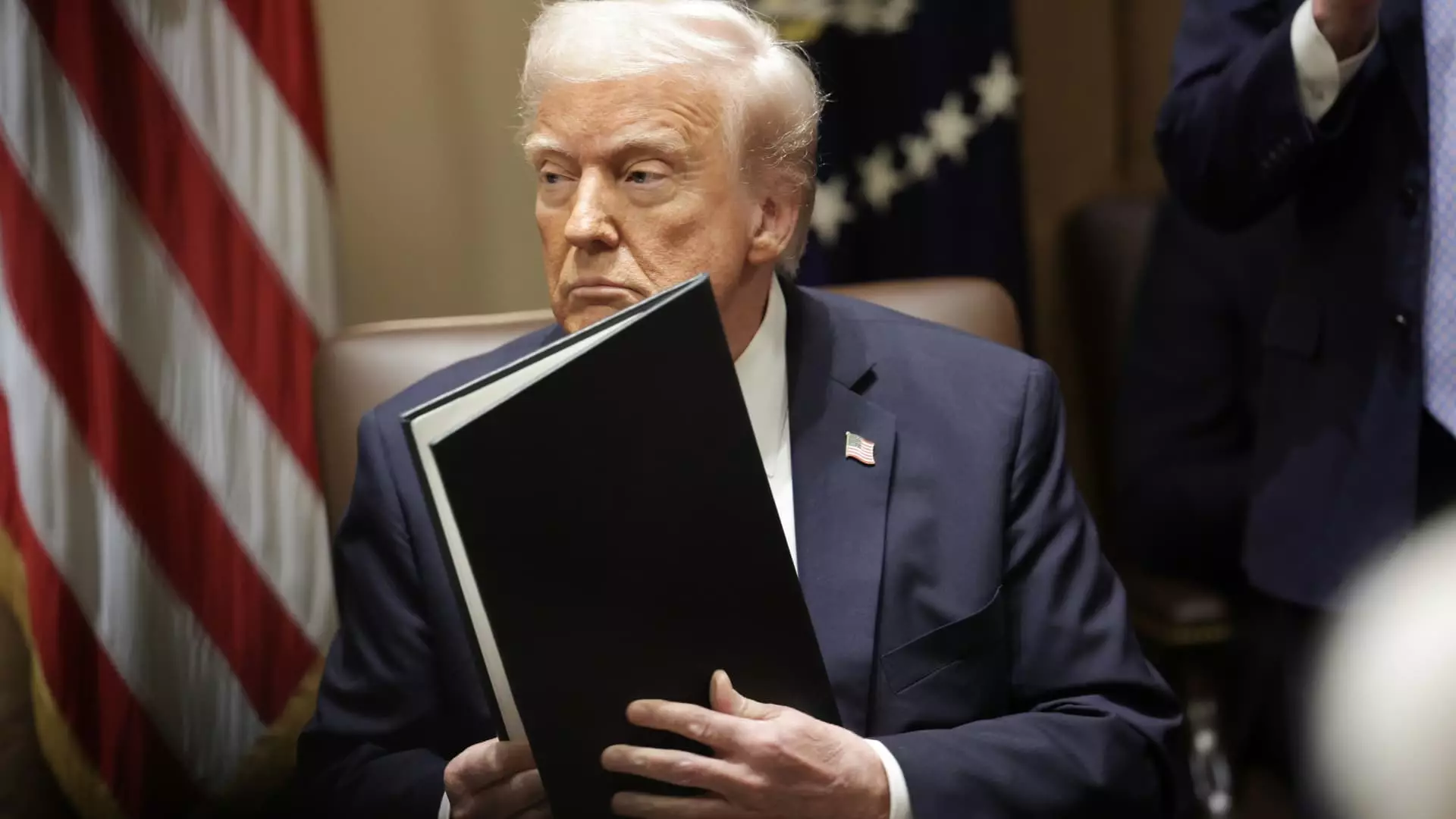In a bold move that could redefine the landscape of international trade, President Donald Trump has announced impending tariffs on auto imports. This announcement, marked for a press conference in the Oval Office at 4 p.m. ET, has sent shockwaves through the financial markets. Stock prices plummeted as uncertainty gripped investors like a vise—a reaction all too familiar to observers of Trump’s erratic trade tactics. His long-promised imposition of substantial tariffs on foreign goods raises crucial questions about the stability of U.S. trade relationships and the genuine intent behind these measures.
Promises and Proclamations: The “Liberation Day” Disguise
Trump has touted April 2 as “liberation day,” a day of reckoning for countries he perceives as unfair trading partners. The original plan, a sweeping series of “reciprocal tariffs” positioned against nations that impose their own duties on U.S. goods, seemingly aims to level the playing field. However, a closer examination reveals that the president’s declarations often lack coherence and consistency. He has recently indicated a flexibility that could undermine the very strengths of his proposals. By suggesting a more lenient approach and allowing countries to negotiate, Trump appears to dilute his previously aggressive stance, leading many to question whether these tariffs are more a rhetorical device than a forthright economic strategy.
Business Leaders in Limbo
For many business leaders, these developments spell disaster. The chaotic nature of Trump’s tariff announcements fosters an environment rife with uncertainty. Companies, unsure how to strategize or plan for investment, find themselves at the mercy of the administration’s whims. The auto industry, in particular, can expect to feel the brunt of these changes. Will manufacturers absorb the costs or pass them on to consumers? The ripple effects could jeopardize jobs and economic stability across various sectors—a risk few are willing to take without clearer guidelines.
The Consequence of Trade Wars
Trade wars rarely benefit the countries involved. As Trump pushes forward with this contentious policy, it’s critical to recognize the potential backlash. Foreign nations may retaliate, leading to a tit-for-tat exchange that could hammer American exports. What was once a flourishing market for U.S. goods may swiftly transform into a battlefield, where American workers find themselves squeezed on both sides: facing higher prices at home and losing access to international markets.
A Call for Thoughtful, Center-Left Awareness
As a center-wing liberal, I find this recklessness in trade policy alarming. While there is merit in ensuring fair trade practices, the means through which these ends are pursued matter significantly. Trade must be approached with a balance of assertiveness and diplomacy—shouting demands from the Oval Office may please some factions but risks creating long-term rifts. Collaboration brings better results than aggression; the former fosters mutual growth, while the latter breeds only resentment. Such a nuanced approach could redefine American trading power without sacrificing domestic industries or inciting unnecessary conflict on the global stage. With a more thoughtful strategy, the U.S. could emerge as a leader in fostering cooperative international trade relations.



Leave a Reply